UNMIK and KFOR Prepare for Kosovo Violence, as Shoot-to-Kill Policy Resumes
It's shoot-to-kill time for NATO in Kosovo as tensions heat up.
More...We kindly inform you that, as long as the subject affiliation of our 300.000+ articles is in progress, you might get unsufficient or no results on your third level or second level search. In this case, please broaden your search criteria.
It's shoot-to-kill time for NATO in Kosovo as tensions heat up.
More...
A leaked police document created by the United Nations Mission in Kosovo (UNMIK) police force states that a recent house search turned up al Qaeda-related materials.
More...
The UN's police chief in Kosovo receives death threats- the mafia, it seems, is alive and well.
More...
Calls for a Kosovo army have always been predicated on the notion that a small, orderly military force under NATO’s training would provide a professional alternative to the shadowy paramilitaries that have roamed Kosovo under different acronyms over the past decade. They all, however, have a common source (the Kosovo Liberation Army which fought the Serbs from 1997-1999). Now, the Great Powers want to make the TMK civil defense force into Kosovo's future army.
More...
This article discusses the Albanian militant stand-off in the Skpje-area village of Kondovo in light of the conflict's religious aspect: the Saudi-funded medresah operating there, and the possible vindication of decade-old warnings from the opposition that if left unchecked, such centers of Islam could turn into a magnet for terrorists.
More...
What little can be done for Kosovo's Serbs in the chance of future violence, will have to be accomplished surreptitiously, by Special Forces veterans in civilian garb- already in place, sources say.
More...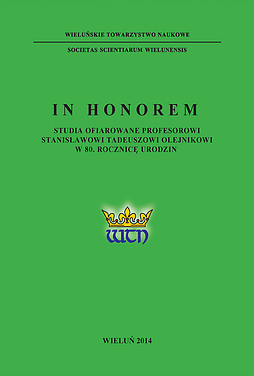
Pont, którego centrum stanowił Trapezunt, był jedną z najważniejszych prowincji Cesarstwa Bizantyńskiego na południowym wybrzeżu Morza Czarnego, pozwalającą uważnie przyglądać się sytuacji za wschodnią granicą Cesarstwa. Region ten od dawna przejawiał tendencje separatystyczne, które podsycała specyfika ekonomii Pontu, a także jego szczególne, a nawet archaiczne właściwości. Z kolei pozycję i charakter Trapezuntu na ziemiach Pontu można uznać za podobne do roli i znaczenia Konstantynopola w całym Bizancjum, gdyż w obydwu przypadkach miasto dominowało nad prowincją. Warto także dodać, że Trapezunt nie chciał żadnej formy zależności od stolicy Cesarstwa Bizantyńskiego.
More...
Principalul obiectiv al acestui studiu ţine de evidenţierea şi analiza problematicii violenţei asupra femeii în cadrul familiei, în diversele contexte istorico-sociale. Astfel, „celula de bază a societății”, aşa cum se mai numeşte familia, este analizată din perspectiva procesului de modernizare a societăţii şi emancipare a femeii. Este vorba de multiple schimbări în interiorul familiei în ceea ce priveşte socializarea primară în funcţie de gen, precum şi mentalităţile privind rolul femeii şi al bărbatului în intimitatea familiei. Din perspectiva socioistorică, violenţa în familie a constituit un fapt încă din cele mai vechi timpuri, însă în prezent s-a ajuns la construirea unor servicii specializate în scopul prevenirii şi combaterii acesteia. Societatea românească a parcurs un drum lung de la monarhie la comunism, postcomunism şi tranziţia la democrație și economia de piață, fapt reflectat cu certitudine în diversele instituţii ale statului, cât şi în revoluţionarea perspectivelor individuale.
More...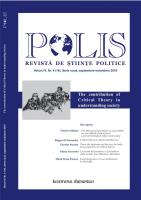
Following the 9/11 attacks, a coalition of West Countries, led by the United States of America, militarily occupied two countries - Afghanistan and Iraq - in part rewriting the rules which up until then had clearly outlined the difference between a war of aggression and a war of defence. By analyzing the various speeches of ten important world leaders of West Democratic Countries on terrorism of fundamentalist matrix, we will outline a contradiction: declaring the necessity of war as a condition and objective of peace. This is solved in different ways: it becomes an ambivalent strategy in the cases of Obama and Merkel, with the latter being less explicit; in the cases of Bush, Berlusconi, Blair and Rice it leads, albeit with different motivations and arguments, to a stark choice: war; whereas it disappears in the speeches of Zapatero, Prodi and Cameron, who speak of actions and strategies to combat terrorism without ever mentioning war. Without offering any value judgment of the content of the various arguments, I only take them as a pretext to reflect on the rules of ambivalent communication: a communication which starts from a clear contradiction, and argues the necessity of it, before demonstrating its usefulness and proposing strategies of action that take it into account. The essay is divided into two parts: in the first one (which is published in this issue) I discuss the concept of sociological ambivalence, I distinguish ambivalence from contradictions and ambiguity and I identify the argumentative strategies of an ambivalent communication. Then I analyze the speech the President of the United States of America Barack Obama delivered on December 10, 2009 in Oslo when he received the Nobel Peace Prize as an example of “good” ambivalent communication. In the second part of the essay (which will be published in the next issue), I analyze the speeches of other world leaders as different examples of ambivalent communication.
More...
Review of: Veljko Vujačić - Vojin Dimitrijević, "Terorizam", Radnička štampa, Beograd, 1982, str. 270.
More...
The adoption of the United Nations Security Council Resolution 1325 on women, peace and security (WPS) in 2000 has prompted the development of an extensive WPS scholarship within the field of feminist International Relations. The dynamic scholarly debate is characterised by certain tensions between two feminist groups – the radical revolutionary one which advocates a redefinition of the global order and is more sceptical of the agenda, and the pragmatist one accentuating the compromise towards the existing peace and security governance. This article explores the two main subjects of the WPS research – the discourse and implementation, as they have been informed by the revolutionary and pragmatist approaches. The article shows that while the academic inquiries into the WPS discourse reveal disappointment with the compromises made regarding the revolutionary vision, this disappointment is also present in the literature on implementation. The latter literature nonetheless acknowledges feminist pragmatism as a way forward given the realities on the ground.
More...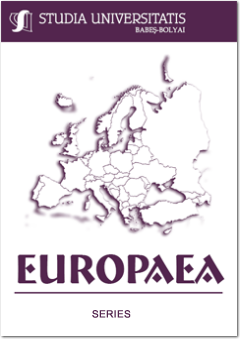
The article analyses the different trajectories of former combatants of the Mouvement des Forces Democratiques de Casamance (MFDC) in southern Senegal, focusing on the political prosecution of the armed struggle. If the independence demand is often present in their speech, it takes different forms and allows them to enter the local political life or become agents of the peace process. It is about trying to understand the motivations of actors and contextualize them in order to identify the mechanisms that lead to long-term dialogue and conflict resolution.
More...
Recent insights in the field of peacebuilding and conflict transformation studies underline the importance of involving natural resources in conflict resolution. This research shows that, even in a pro-independence conflict that has been going on for over 37 years in southern Senegal, natural resource management can play a key role in conflict resolution. The local civil society confirms the involvement of natural resources in the conflict, but too often forgets them in its own activities as well as when making a list of key elements to achieve peace in the region.
More...
The research is focused on Iraq's political peace-building strategy, the impact of the fallacies that led to split in the Iraqi political system and the ability of positive approaches to avoid the conflicts. Referring to the fact that the "shock of conflict"dominates in relations among societies, as well as clarifying the main reasons o fthe conflicts, the research warns of the danger of "jumping on pain" and calls for a focus on the “common history” and the “deep relations” and adopting the adopting a“dispute resolution strategy”.
More...
Europe is increasingly struggling to support the reintegration of people who have returned from ISIS-controlled areas and have been adherents of their ideology. There are a variety of methods developed to support the de-radicalisation and disengagement of Islamic radicals. This article provides an overview of the methods and discussion topics used by practitioners in the framework of such deradicalisation and disengagement programmes. The research is based on interviews with experts from Austria, Finland, Germany, Ireland, the Netherlands, Sweden and the United Kingdom. As a result, the author has drawn the following conclusions: 1) The selection of methods used for de-radicalisation and disengagement depend on the individual in question. In this context, the most important starting point is to gain an understanding of the factors that contributed to that specific person’s radicalisation and/or involvement in an extremist organisation; 2) The main supportive methods are mentoring, socio-economic aid/assistance, psychological and religious counselling; 3) The discussions with mentors and other sponsors are aimed at developing new perspectives. The main topics of discussion are related to identity, belonging, foreign policy and possible new ventures; whereas the issues of religion and ideology are the focal topics for people whose radicalisation and/or engagement with extremist organisations was motivated primarily by those aspects. Overall, the results indicate that the methods used to support de-radicalisation and disengagement should be tailored to the needs of the individual. However, there is still a lot of work to be done by organisations running such radicalisation and disengagement programmes in order to improve their capacity to deliver a variety of activities to support an individual’s reintegration in a holistic manner.
More...
Nowadays, the manner in which the countries of the Global North wage war has become more complex than ever before. Its various forms are more difficult to distinguish, its course is more volatile, its focus is more peoplecentric, and it is more high-tech. More specifically, the actors increasingly use tactical and operational measures originating from the areas of information space, networking, indirect and covert operations, and technological innovation. This allows in the Global North to preserve their own political room to manoeuvre at low cost and risk.
More...
The term “hybrid war” is not particularly novel – it was first used by Frank Hoffman in 2007 in his presentation “Conflict in the 21st Century: The Rise of Hybrid Wars” at the Potomac Institute for Policy Studies. Hybrid war is often considered as a precursor to large-scale military operations and irregular war. However, that is not an entirely accurate description because hybrid war entails the use of military resources in combination with other means of influence, such as clandestine operations, political activities, cyber operations, information operations, economic activities, and diplomacy. Russia has been using hybrid warfare for a long time, but in 2013 it was finally introduced as an official doctrine by Valery Gerasimov, Chief of the General Staff of the Russian Armed Forces. The focal point of the doctrine was the concept of influence, which is based on the idea that the main battlefield resides in the minds of the people, and consequently, in the future, information and psychological operations will take precedence in waging war and will be aimed at undermining the morale of the adversary’s military and its civilian population. Russia usually engages in this kind of behaviour in order to win time before the international community comes to the realisation that it is Russian aggression they are dealing with. The Russian minorities in its near abroad play an important role in hybrid warfare because Russia can always appeal to be “acting in defence” of their interests. In the Georgian case, those minorities were in Abkhazia and South Ossetia. After President Saakashvili assumed power in Georgia and began steering the country towards joining NATO, Russia felt the urge to interfere in order to keep Georgia within its sphere of influence, especially considering its importance as a transit route for Azerbaijan’s oil and gas. Therefore, the outbreak of war in August 2008 was not decided by the presidents of Russia or Georgia, the decision was made much earlier. During NATO’s 2008 Bucharest summit, Georgia was given hope with regard to becoming a full member of NATO, and that served as the main catalyst behind the hybrid war launched against it by Russia. Thus, the so-called August War of 2008 constitutes just one small battle in the ongoing longterm conflict between the two countries, while secessionist Abkhazia and South Ossetia are just pawns used by Russia to influence Georgia.
More...
The Georgian-Russian conflict of August 2008 constitutes just one phase in the protracted conflict between Georgia and its break-away regions Abkhazia and South Ossetia. For the first time since the dissolution of the Soviet Union, Russia employed direct armed force against another sovereign state (as opposed to its indirect interference in the affairs of other states). In the case of Georgia, Russia had played different roles over the years, from facilitating peaceful dispute resolution between the conflicting parties to supporting the separatist regimes in Abkhazia and South Ossetia. In the summer of 2008, the situation between Georgia and South Ossetia was deteriorating, e.g. armed clashes along the separation line had become more frequent and serious, with political meetings often called off and failing to reduce tensions. On 7 August 2008 at 23:35, Georgia launched its military operation against South Ossetia, claiming self-defence before the United Nations Security Council, in order “to protect the sovereignty and territorial integrity of Georgia as well as the security of Georgia’s citizens”. Since South Ossetia had previously been recognised by the international community as an integral part of Georgia, its action to regain control over the separatist region did not lead to any serious legal debates regarding its right to use armed force. On the whole, Georgia was regarded as the victim, and it seemed that the international community was not expecting Georgia to offer more elaborate legal explanations. Russia, on the other hand, claimed that it was also exercising self-defence. Namely, it was compelled to defend its peacekeepers and nationals in South Ossetia. The right to use armed force to protect peacekeepers from attacks was the most feasible legal argument put forward by Russia. Indeed, peacekeepers have the right of unit self-defence, and their sending state may also have the right of state self-defence, provided that the necessary conditions are met. However, the Independent International Fact-Finding Mission on the Conflict in Georgia was not able to determine whether there had been an (intentional) attack by Georgia against Russian peacekeepers. Russia’s second argument, the right to use armed force to protect nationals abroad, is controversial. Although there have been incidents where states have claimed such a right, and have actually employed armed forces to protect nationals abroad, it has almost always resulted in criticism from the international community. There are also cases of states acquiescing to non-combatant evacuation operations where armed forces rescue civilians from conflict areas. However, even in those cases, most states have not conceded that such operations are permissible under international law, opting to refrain from condemning such operations. Moreover, Russia’s arguments are weakened by the fact that it had laid the groundwork for the conducive circumstances granting it the right to protect nationals abroad, having readily “handed out” Russian nationality to the residents of South Ossetia and Abkhazia since the 1990s and especially in 2008. Although the residents of these regions welcomed Russian nationality, Georgia regarded Russia’s actions as the gradual establishment of a foothold to be used as a pretext for future invasion. Ultimately, although Russia may have had legal grounds to protect its peacekeepers and nationals, the extensive five-day military operation that followed in South Ossetia, Abkhazia and in other parts of Georgia was nevertheless not permissible under international law because self-defence must be necessary and proportionate.
More...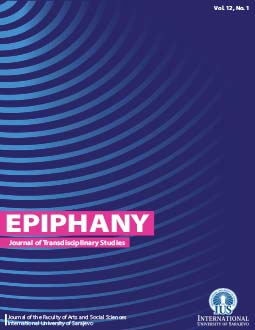
This article analyses community participation in peace-building in the Mt Elgon area between 2007 and 2017. The article assesses the use of indigenous methods of conflict resolution embedded in restorative practices, as well as seeking to establish the role that Mount Elgon’s Residents Association (MERA) played in peace-building. The study adopts the theoretical work of Johan Galtung’s conflict analysis model and John Paul Lederach’s conflict transformation work on peace-building. The study reveals a yawning need for younger community members to be more involved in peace-building activities in the Mt Elgon area. It further reveals that community members aged between 35 and 54 years strongly believe that their traditional culture and indigenous practices are central to their peace-building efforts in their locality. The study found a majority of community members felt that their involvement has played an important role in disarming local militia groups and in peace-building. Overall, the community strongly pointed at land and “dirty politics” as issues being at the forefront of community conflict in Mt. Elgon.
More...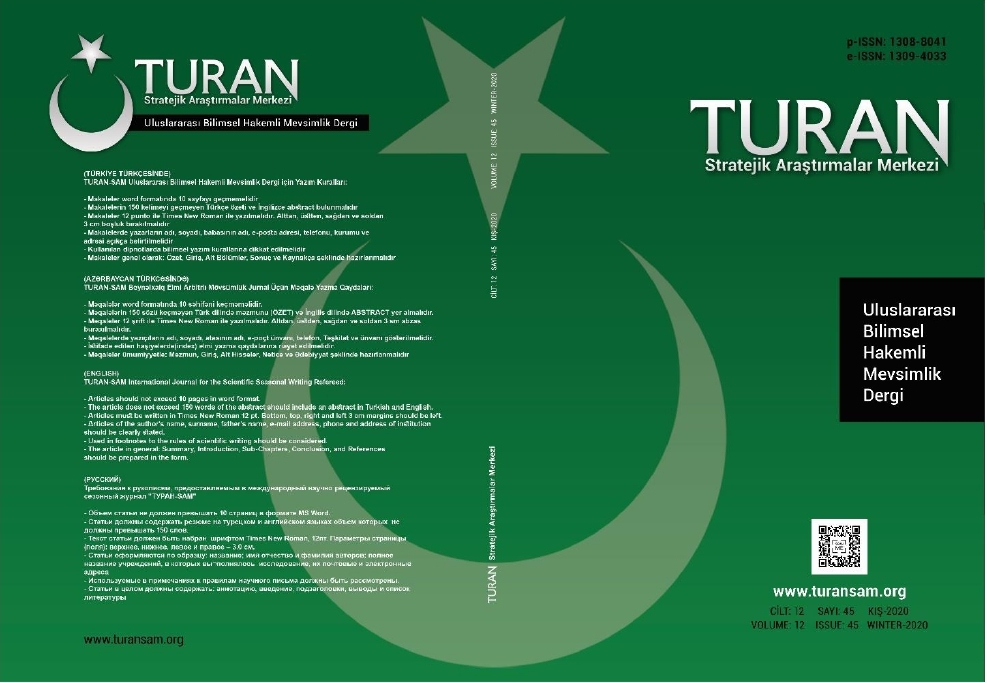
Over the past almost 30 years UN peacekeeping operations have been consistently tainted by widespread reports of sexual assault, abuse and exploitation committed by peacekeepers. The fact that these peacekeepers, who are seen as a symbol of hope for so many in need around the world, could be further victimizing those they are intended to protect and help is a horrible situation to imagine not to mention live the reality of. This epidemic is exacerbated by the lack of ability on the part of the UN to put an end to these types of abuses. We will examine for the purposes of this paper the history of abuse and violations on UN peacekeeping missions, the measures taken by the UN to address the problem, outside suggestions for solutions, and finally address my personal views on how these issues can be solved in the long term.
More...